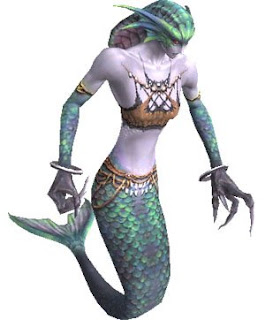Despite Claim that "MERROW" Means "Mermaid," TTAB Affirms 2(e)(4) Surname Refusal
Finding that three of the four surname factors support the PTO's refusal, and the fourth is neutral, the Board affirmed a Section 2(e)(4) refusal to register the mark MERROW for "toys, namely playsets for toy figures and plastic character toys; toy action figures and accessories therefor; stuffed and plush toy animals." In re Lash’s Lessons, LLC, Serial No. 78857737 (May 27, 2008) [not precedential].

Applicant made the not uncommon, but typically unsuccessful, statistical argument that "only 0.0004% and 0.001% of the people in the Lexis/Nexis ('P-Find') and the 'Long Lost People' databases, respectively, have 'merrow' as a surname." The Board agreed that MERROW is a rare surname, but pointed out that this conclusion does not preclude a Section 2(e)(4) refusal. "There is no minimum number of listings to prove that a mark is primarily merely a surname." Moreover, "given the large number of different surnames in the United States, even the most common surnames would represent but small fractions of the total population."
The second factor was neutral: no one connected with Applicant has the surname MERROW.
As to the third factor, Applicant contended that MERROW has a meaning other than as a surname because it means "mermaid." It supplied a definition from the Oxford English Dictionary of "merrow" as "mermaid," as well as an entry from Spirits, Fairies, Gnomes, and Goblins: An Encyclopedia of the Little People (1946), in which "'merrow" is defined, in relevant part, as follows:
"This is the name of the Irish Mer-people, who may also be called the Murdhuacha, Moruadh, Moruach, Muir-Gheilt, Samhghubha, or Suire. The mermaids appear as beautiful young women above the waist with pale skin, dark eyes, and long hair, but as a fish below the waist. Their mermen are ugly, with green skin, teeth and hair, but a sharp red nose and tiny, narrow eyes."
The Board, however, did not "believe that a significant number of people would recognize this non-surname meaning because it is obscure. Applicant’s own evidence shows that this meaning is associated with Irish folklore or mythology." Moreover, "negative" dictionary evidence submitted by Examining Attorney Laurie R. Kaufman showed no such definition for MERROW. In short, "Applicant certainly has not demonstrated that consumers in the United States would recognize that 'merrow' is another name for a mermaid."
Finally, as to the fourth factor, the Board agreed with the PTO that MERROW has the "look and sound" of a surname, "especially since the record shows that there are numerous individuals with the surname 'Merrow;' that such term has no readily recognized meaning other than its surname significance; and that nothing in the record indicates that MERROW would be perceived as an initialism or acronym, or a coined term."
Balancing the factors, the Board affirmed the surname refusal.
TTABlog comment: The "look and sound" factor is a bit of a joke. Here, Applcant suggested that the word MERROW had the "look and sound" of the word "marrow" rather than that of a surname. The Board brushed that argument aside and bootstrapped itself into a finding that MERROW has the look and sound of a surname based on the first and third factors.
As Judge Seeherman has pointed out several times, the "look and sound" factor really has no place in the surname analysis. See, e.g., the TTABlog posting here.
Text Copyright John L. Welch 2008.




0 Comments:
Post a Comment
<< Home